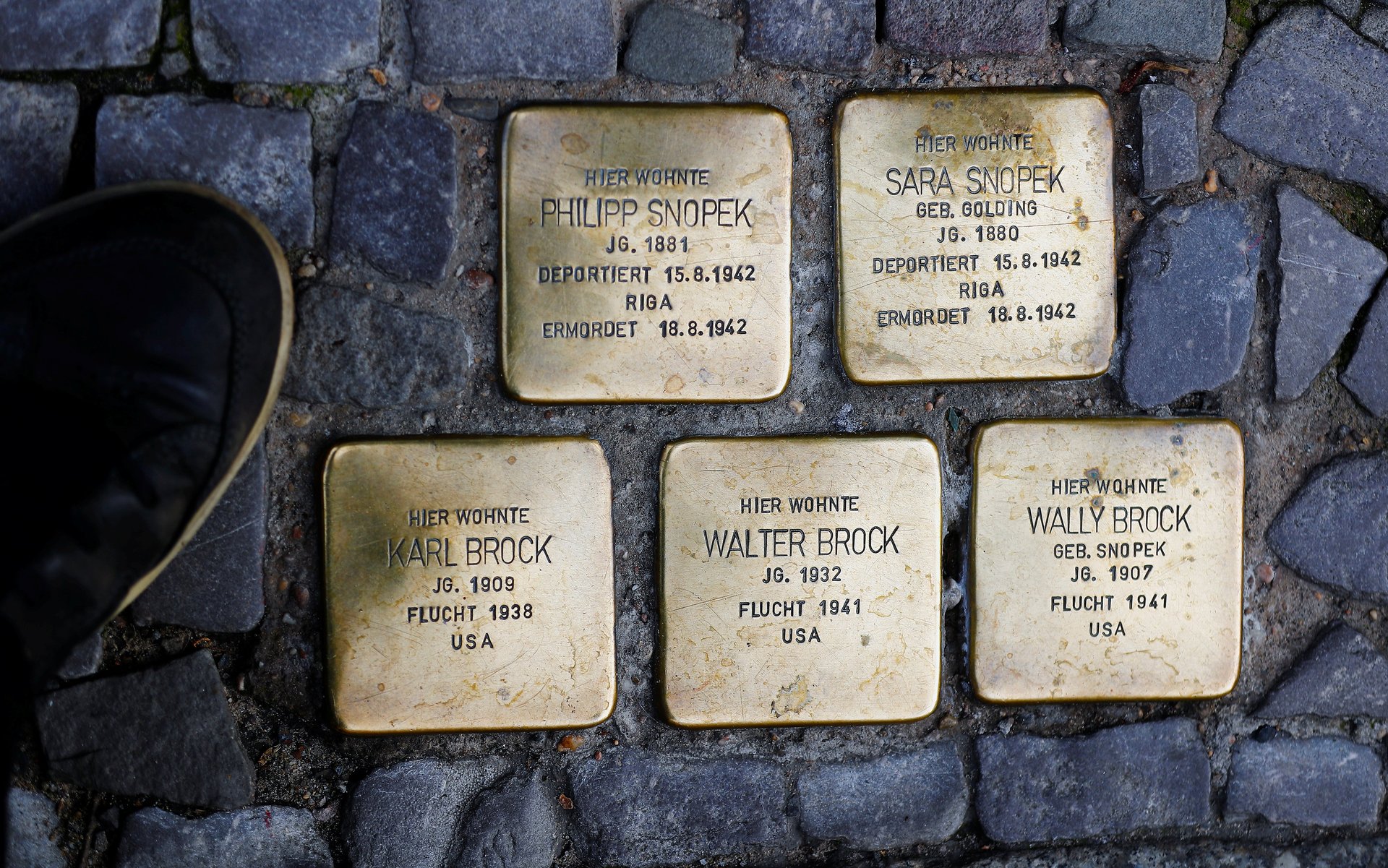The anti-Semitism that lead to the Night of Broken Glass has not gone away
Eighty years ago today, the Nazis instigated a horrific two-day mob attack against Germany’s Jews, smashing and looting thousands of Jewish homes and businesses and destroying more than 1,000 synagogues. The Nazis called it “Kristallnacht.” In English it became known as the Night of Broken Glass. At least 91 Jewish people were killed, and the Nazis rounded up some 30,000 Jewish men and sent them to concentration camps. Those who could, fled. Millions who couldn’t escape would later perish in the Holocaust.


Eighty years ago today, the Nazis instigated a horrific two-day mob attack against Germany’s Jews, smashing and looting thousands of Jewish homes and businesses and destroying more than 1,000 synagogues. The Nazis called it “Kristallnacht.” In English it became known as the Night of Broken Glass. At least 91 Jewish people were killed, and the Nazis rounded up some 30,000 Jewish men and sent them to concentration camps. Those who could, fled. Millions who couldn’t escape would later perish in the Holocaust.
This year’s remembrance of the terror unleashed on German and Austrian Jews takes place against a backdrop of rising nationalism and populism across Europe and the US. “We have sadly almost become accustomed to the fact that every synagogue, Jewish school, kindergarten, restaurant and cemetery needs to be either guarded by police or given special protection,” German chancellor Angela Merkel said in her address at Berlin’s Rykestrasse synagogue today. This reality is all too fresh for the Jewish people of Pittsburgh, who are mourning the death of 11 people on Oct. 27, when a gunman opened fire in the Tree of Life synagogue in Squirrel Hill.
Berlin will mark the November pogrom today with a number of events (link in German). People will gather across the city to read the names of Holocaust victims inscribed on brass blocks embedded in pavements outside the houses where they used to live. The Stolperstein project (translated as “stumbling blocks”) began in 1996. With some 70,000 blocks now in place all over Europe, it has become the biggest decentralized monument in the world.
Jewish leaders in Europe have warned that the rise in populism across Europe is fueling a resurgence in anti-Semitism. In April, the European Jewish Congress said Europe’s largest Jewish communities are suffering a level of mainstreamed anti-Semitism “not seen since the Second World War.”
A report investigating online anti-Semitism during the US midterms by Jewish civil-rights group Anti-Defamation League said that once rare anti-Semitic harassment and attacks have become “normalized” and “a daily occurrence” since the election of Donald Trump. ADL national director Jonathan Greenblatt says that the midterm elections were a “rallying point” for far-right extremists spreading hatred against Jews online.
A German police report earlier this year said an average of four anti-Semitic crimes a day occurred in 2017, which was around the same as in 2016, but noted that right-wing extremists were behind the majority of the crimes, which ranged from damage to property to incitement to hatred and acts of violence.
The Central Council of Jews in Germany said at the weekend that the rise of the right-wing Alternative for Germany party, which is now present in the federal government and all 16 state parliaments, “creates a platform on which anti-Semitism can grow and manifest itself openly.” Similarly, Silvija Kavcic, the leader of the Stolperstein Berlin office, says persistent anti-Semitism in Germany has started to get more media attention, in part because the Alternative for Germany (AFD) party “is making a big effort to shift the discourse further to the right.”
Germany’s Council of Jews is also concerned about anti-Semitism among Muslim immigrants to Germany from countries like Syria, who made up a large number of the million-plus refugees who have come to Germany since 2015.
Some of the refugees came from countries “in which anti-Semitism is part of the rationale of the state and the Jewish state is denied the right to existence,” council vice president, Abraham Lehrer said in an interview. He wants to see classes on anti-Semitism and democratic values form part of the country’s migrant-integration courses.
As Germany prepares to commemorate the events of that night, a far-right rally received court approval to march in Berlin at the same time. Berlin’s interior minister, Andreas Geisel, called the thought of right-wing extremists marching on the Kristallnacht anniversary “unbearable” and is appealing the court’s decision.
Kristallnacht “happened before all eyes, all were perpetrators,” Rabbi Andreas Nachama, of the Sukkat Schalom community in Berlin said in a statement. “November 9 in the 20th century is a fateful day in German history, a learning day. We remember the past so as not to fall back and learn for the future.”